AI: an opportunity amidst a crisis
As organisations repair, rethink and reconfigure their business models to navigate the uncertainties of the post COVID-19 world, they have started realising the potential of digital and cognitive technologies to increase resilience, spot growth opportunities and drive innovation. Our annual survey of CXOs and decision makers has revealed that as we emerge from the current crisis, optimism with regard to AI has gone up significantly from 72% to 92%, and the rate of AI adoption has increased from 62% to 70%. Further, 94% of the respondents claim they have either implemented or are planning to implement AI in their organisations.
However, to get the best out of AI, businesses need to start viewing it as a necessity rather than a luxury. In this study, we explore how enterprises can adopt and scale up AI initiatives to maximise their impact on business outcomes.
AI and COVID-19: An overview
Amidst the global pandemic, India has noted the highest increase in the use of AI as compared to major economies in the world.
Changing priorities and risk awareness
As organisations mature along the AI journey and move from implementing pilot AI projects to scaling them up at the enterprise level, the nature of the challenges they face has evolved from purely technical or data-related constraints to more business-related constraints such as RoI calculation and selection of the right use cases.
Sectoral view
Sectors which have faced the most disruption due to COVID-19 have embraced AI in a more definitive manner because for them it is more of a business necessity than a ‘good-to-have’ solution. Travel and hospitality (89%) has taken the lead in AI implementation, followed by TMT (86%), financial services (82%), and healthcare and pharma (73%).
Use case view
Customer-led transformation related use cases which have a direct impact on demand generation and customer satisfaction have emerged important during the current economic environment.
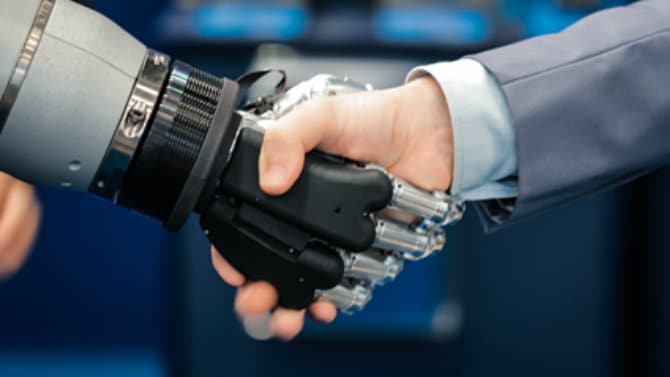
Use cases
Front office transformation has undergone the initial wave of customer relationship management (CRM) implementation and is now embracing AI-enabled solutions to tide over a post-pandemic crisis where both demand and supply have been volatile.

Enhance-Explore Framework
Organisations need to take a strategic view and maintain a pipeline of use cases that helps them reconfigure and prepare for the new normal.
Industry Outlook
Much of the travel and hospitality sector is looking at AI-powered digital solutions to reconfigure business processes and promote contactless experiences, safety and long-term operational changes. The rapid generation of data has helped the sector to drive pilots but when it comes to scaling up the solutions, the sector has witnessed challenges around the complexity and cost of implementations.
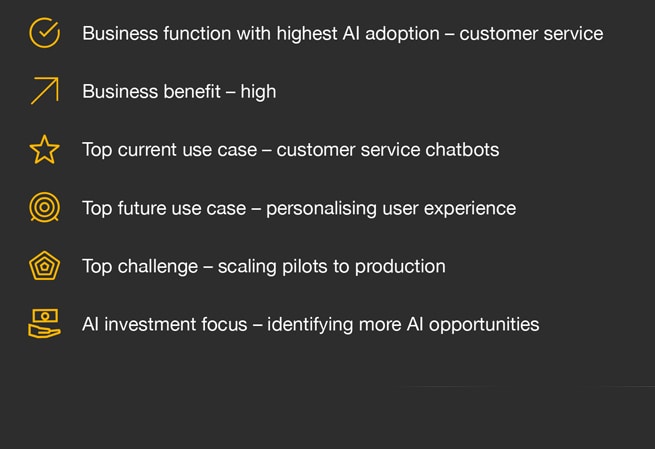
AI has enabled the industry to make significant gains in the domains of manufacturing and operations. The usage of AI has improved productivity in operations (44%), predictive maintenance (38%) and better demand forecasting (28%).
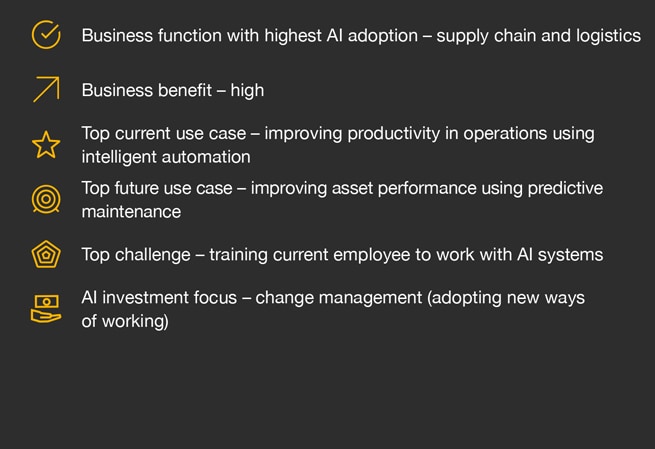
The TMT industry has been at the forefront of AI adoption, with around 10% of TMT organisations already implementing AI solutions on scale at the enterprise level. Over the next couple of years, the industry will invest in the development of data-driven recruitment (46% firms) and AI-based virtual assistants for learning and development capabilities (46% firms).
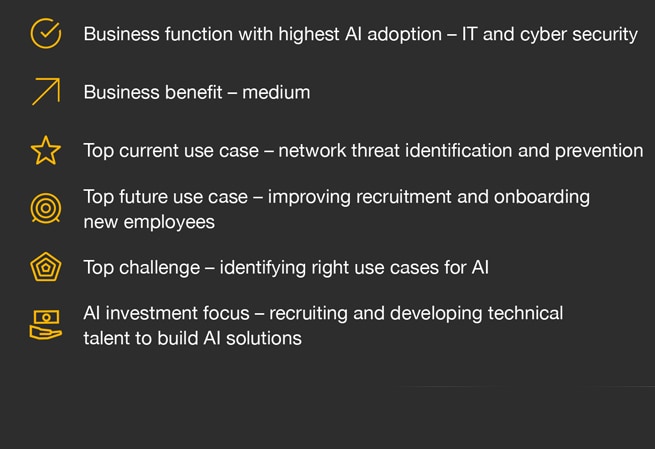
The financial services sector has focused on the core processes of the value chain such as customer service (73%), fraud detection (58%) and due diligence (30%). The biggest challenge is the high quality of data (40%) required to develop accurate solutions, and the sector (approximately 70% firms) is keen to invest in improving data quality and developing external third-party data partnerships to accelerate the process.
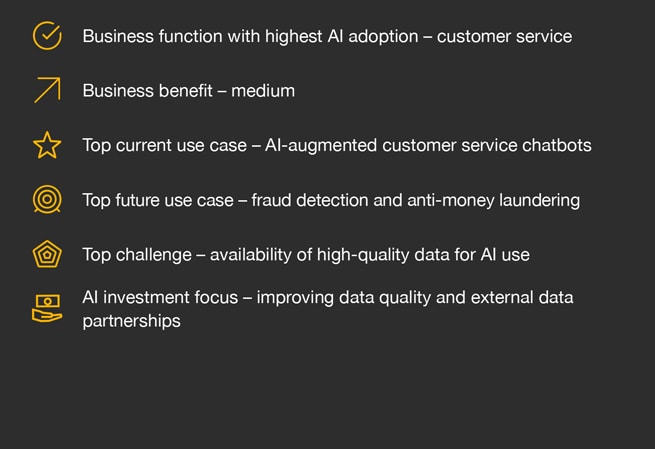
The healthcare sector has been leveraging AI to resolve core business problems, with R&D being the primary area of implementation (57%). AI has helped healthcare and pharma firms to drastically expedite clinical trials and drug discovery, and reduced the time consumed from years to, in some cases, days, consequently leading to huge savings in expenses. AI is also solving complex questions around genome sequencing and protein structures. The sector is looking to adopt AI in customer-oriented functions, e.g. implementing chatbot guidance systems (47%) and hyper-personalising patient care through customer insights (40%).

The industry is taking initiatives for wider adoption of AI, with 86% of the firms investing in identifying more pilots for AI implementation. The sector has a special focus on change management (66%) to equip the workforce to move from traditional and conventional technologies to cognitive technologies.

The way forward
Organisations adopting AI applications often face multiple challenges and fail to realise the optimum value from their AI investments. A planned organisation wide approach will go a long way in scaling these AI initiatives.
About the survey
PwC conducted comprehensive interviews between August and September 2020, eliciting more than 200 responses from CXOs and decision makers across the Indian market. Around the same time (September–October 2020), PwC conducted a larger online global survey that attracted 670 responses from businesses across the world.
The survey covered respondents from industries such as financial services, healthcare and pharma, industrial products, retail and consumer, telecom, media and technology, and travel and hospitality; and business functions such as customer service, finance and tax, human resources, IT and cyber security, manufacturing and operations, research and development, risk, legal and compliance, sales and marketing, supply chain and logistics.

Duration: 00:01:29
















